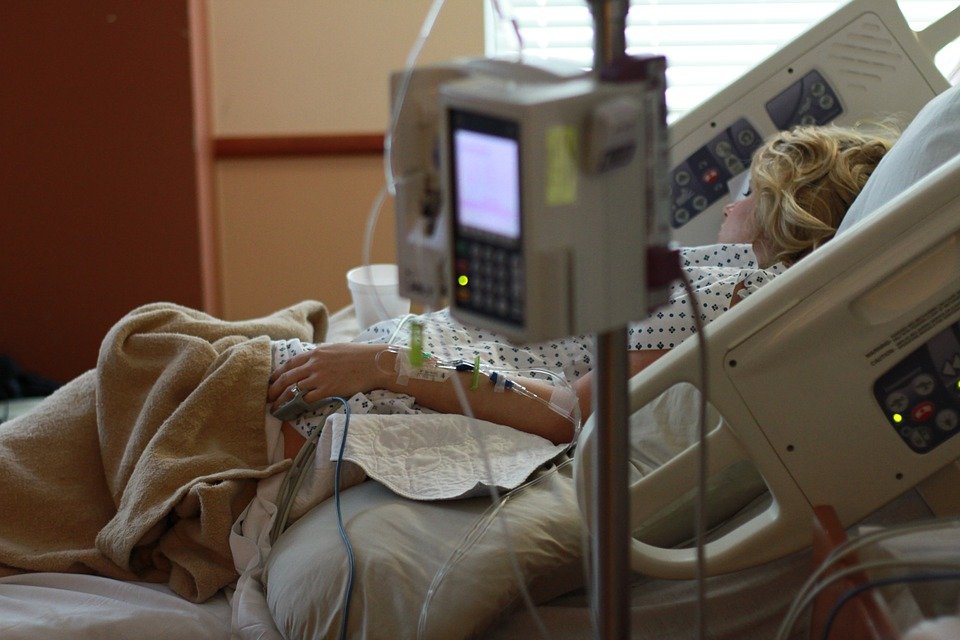Among other concerns about the side effects of vaccinating against coronavirus, there is a common belief that the vaccines can trigger autoimmune diseases. We decided to investigate whether these concerns are grounded in science.
Social media users are writing that autoimmune diseases are among possible side effects of getting vaccinated. They tell scare stories, like: “We know a few about the terrible consequences of introducing foreign animal tissues (their DNA and RNA) into the organism and the autoimmune reactions they can trigger. Vaccines suppress immunity and can cause cancer, leukaemias and even be linked to AIDS.” Or: “Autoimmune disease after vaccination. Thrombotic thrombocytopenic purpura (Moschcowitz disease) with a mortality rate of 90%! The cause? An experimental substance in vaccines!' Users refer to Dorit Blinkstein, head of the Hematology-Gynaecological Service at the Bailenson Clinic Hematology Institute (Israel) and Russian economist Mikhail Delyagin.
Autoimmune diseases are pathologies associated with a malfunction of the immune system. The immune system begins to produce pathological antibodies or aggressive killer lymphocytes that perceive the body's tissues as foreign, and attack and destroy them. Autoimmune diseases can affect an isolated organ, but usually the autoimmune inflammatory process affects all organs or even the whole body. Autoimmune diseases include systemic lupus erythematosus, multiple sclerosis, type 1 diabetes, autoimmune thyroiditis (inflammation of the thyroid gland), hyperthyroidism, Sjögren's syndrome, Goodpasture syndrome, and others. Autoimmune conditions have been studied most actively in the last century, but they have accompanied humankind for millennia. The earliest known human tissue sample with an autoimmune disease dates back to 4500 BC.
Scientists have identified the four main causes of autoimmune diseases.
The first is infection by an agent whose epitopes (part of a molecule to which an antigen reacts; more about epitopes and antigens here) are similar to those of normal body tissues. For example, a streptococcal infection can lead to autoimmune glomerulonephritis (inflammation of the kidney tubules), and gonorrhea or chlamydia infection can lead to reactive autoimmune arthritis.
The second cause is an alteration to a body tissue due to pathological processes so the body begins to attack it. This is the principle behind the development of autoimmune chronic hepatitis after viral hepatitis.
The third cause is a breach of the barrier between tissues and organs and blood, and therefore also the lymphocytes in it. This is the reason autoimmune prostatitis and thyroiditis can develop.
The fourth cause is the pathological stimulation of the immune system or an imbalance in the immune system with increased killer lymphocyte activity.
In simple terms, in the first case, the body kills cells that are similar to cells of a virus it has previously defeated. In the second case, it kills cells that have changed due to disease, but have already recovered. In the third case, due to breaches to the organism's airtightness, it kills whatever intrudes in the wrong place, or, conversely, killer cells penetrate normal tissue and destroy it. And in the fourth case, due to heightened reactions, the organization kills everything it sees.

Vaccination definitely cannot trigger the second and third mechanisms. If the first cause worked (the similarity of the virus's epitope and human tissues), then autoimmune diseases would be triggered by both the disease and vaccines (whole-virion or if a similar epitope were located on the S-spike RDB domain) with equal frequency, and if the epitope were located elsewhere in the virus, only the disease and whole-virion vaccines would be triggered. Finally, in theory, the fourth cause could also become that "trigger".
Let's try to understand. During clinical trials of the Sputnik V vaccine, researchers did not record a single case of autoimmune disease in a group of more than 20,000 volunteers. In January 2021, another group of scientists also investigated possible autoimmunity after vaccination against various diseases. For flu, they calculated a ratio according to which "the risk of developing autoimmune diseases was estimated to be ten times higher after natural flu infection compared to the use of the flu vaccine." And in April, the Australian Ministry of Health reported that not a single case of autoimmune disease caused by vaccination was recorded in the country. As for the Johnson & Johnson and Pfizer-BioNTech vaccines, there are descriptions of clinical cases of the occurrence of autoimmune diseases (in particular, thrombotic thrombocytopenic purpura) after vaccination, but scientists have not yet been able to track the exact relationship between these two phenomena. According to scientists, the data does not allow us to judge the cause-and-effect relationship: further research is necessary.
On July 12, the results of a large-scale observation were published, in which the effectiveness of the blood of vaccinated people against virus variants classified by the WHO as "of concern" were investigated. None of the blood samples taken from vaccinated and previously uninfected people showed autoimmune antibodies. However, there are data from several parallel observations indicating that autoimmune antibodies were observed precisely in the blood of sick people.
Even before the coronavirus pandemic, researchers wondered about the relationship between vaccination and the occurrence of autoimmune diseases. In 2017, a group of scientists analyzed pairs of vaccinations and autoimmune conditions, including the flu vaccine and Guillain-Barre syndrome, the flu vaccine and type 1 diabetes, the hepatitis B vaccine and multiple sclerosis, the hepatitis B vaccine and systemic lupus erythematosus, the MMR (measles, mumps, rubella) vaccine and idiopathic thrombocytopenia, the MMR vaccine and rheumatoid arthritis, the human papillomavirus (HPV) vaccine and primary ovarian insufficiency, the HPV vaccine and systemic lupus erythematosus, the HPV vaccine and ASIA syndrome (autoimmune syndrome induced by adjuvants), and the HPV vaccine and transverse myelitis. According to their observations, the likelihood of these autoimmune reactions arising after receiving these vaccines is less than 0.01%, while some diseases that vaccination aims to prevent can cause an autoimmune response with a much higher probability, not to mention other possible complications.
And finally, regarding those whose positions on the issue of autoimmune diseases resulting from vaccination being used by social media users: Dorit Blinkstein heads several medical departments: the gynecological hematological service at the Beilinson Hematology Institute, the Sackler Faculty of Medicine at Tel Aviv University, the Department of Obstetrics and Gynecology at Kaplan Medical Center, and the Medical School at Hadassah Hospital of the Hebrew University. She is the author of several scientific articles. At the same time, she didn’t speak about a "90% mortality rate" for thrombotic thrombocytopenic purpura but rather reported that, in the past, when modern treatments were not yet available, the mortality rate for this disease was as high as 90%, while most patients today make a full recovery and walk out of the hospital unaided . Moreover, Blinkstein does not report any association she has found between the disease and vaccination. She only says that most of the patients who became ill received the vaccine between 5 to 28 days before that. Social media users distorted the original quote and attached a more frightening meaning to it.
As for Mikhail Delyagin, he does not have a medical education and specializes in economics. Our colleagues have already debunked his statements on numerous occasions.
Therefore, as of today, there is no confirmation that vaccination against coronavirus can trigger autoimmune diseases. However, observations by several groups of independent scientists have established that the coronavirus infection itself can lead to an increase in the number of autoimmune antibodies and, therefore, can trigger autoimmune diseases.

False
Почитать по теме:
Если вы обнаружили орфографическую или грамматическую ошибку, пожалуйста, сообщите нам об этом, выделив текст с ошибкой и нажав Ctrl+Enter.






